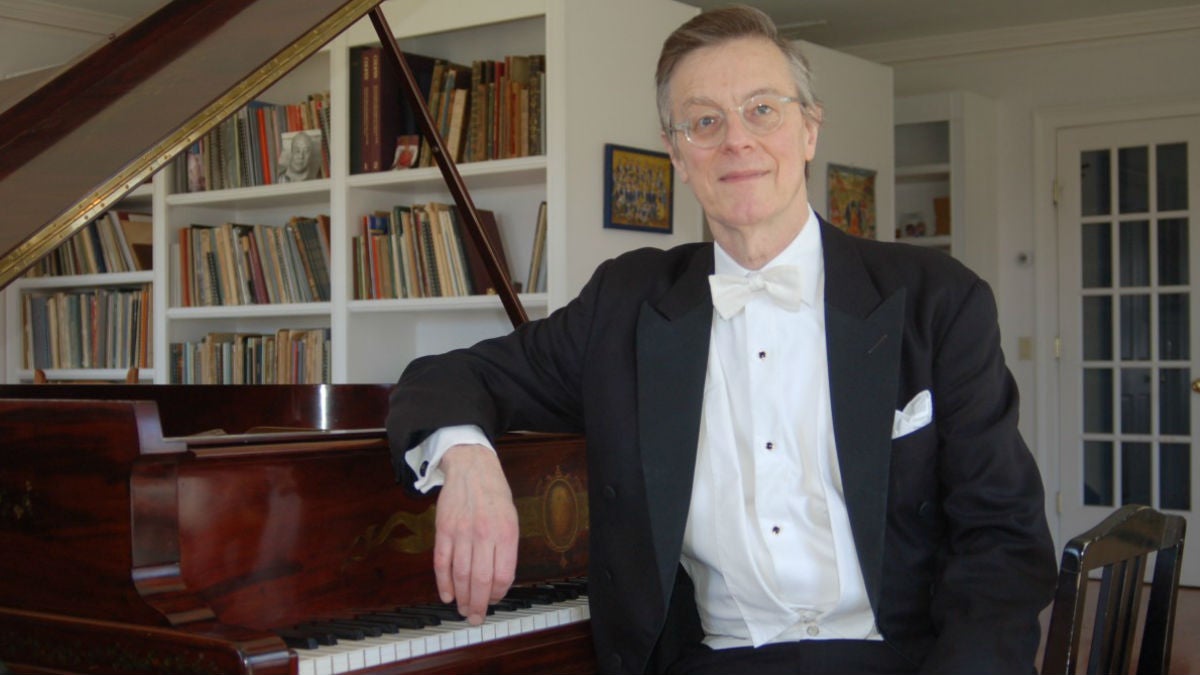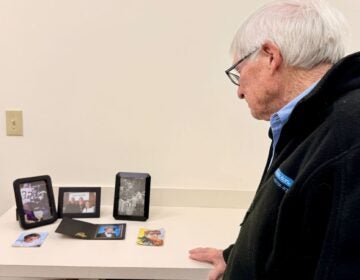Pianist Peter Serkin talks Beethoven before Del. Symphony performance

This Sunday the Delaware Symphony Orchestra under the direction of David Amado welcomes eminent pianist Peter Serkin to Longwood Gardens for a performance of Ludwig van Beethoven's Piano Concerto No. 2 in B-flat major in an all-Beethoven program. (photo courtesy DSO)
This Sunday the Delaware Symphony Orchestra under the direction of David Amado welcomes eminent pianist Peter Serkin to Longwood Gardens for a performance of Ludwig van Beethoven’s Piano Concerto No. 2 in B-flat major in an all-Beethoven program.
Concertgoers of a certain age will remember Serkin as the goateed, tunic-clad pianist of the Tashi Quartet which he helped found back in 1973. Now as he nears 70, he is an elder statesman of classical music.
In this rare interview, conducted via email, he shares his views on family, jazz and Beethoven.
Beethoven’s popularity is unparalleled in music history. His compositions are the gold standard by which all Western music is judged. Is popularity in the creative arts a double-edged sword?
Popularity is a fickle and questionable thing in art. I hardly think that the great composers had mass popularity in mind as an ambition when they wrote their works. Certainly they loved to be appreciated by those who understood and took to their music, but in no way were they going to try to bring that about by writing music that they thought would make them popular. Beethoven’s own approach was defiant, and in a way his current popularity has in it a risk of diluting the strength of that defiance and outrageousness. But it is wonderful to see that composers can be appreciated many years later. A pity though that during their lifetimes many of them were reviled and under-appreciated.
This concerto is a youthful work and the innovation we normally associate with Beethoven is not immediately evident here. Yet underneath the Mozartean structure we hear glimpses of the mature Beethoven. How would you describe this piece to someone who has never heard it before?
The second piano concerto by Beethoven is a youthful work, that is true, but at the same time it is a strong and innovative piece in its scope and in its fervent expression. It is often described as being somewhat like Haydn and Mozart but for me that is quite misleading. There are bold strokes, such as at the end of the slow movement, the damper pedal held down while the piano extemporizes responses, cadenza-like, to the quiet orchestra’s questionings. The great cadenza to the first movement was composed by Beethoven decades after his having written the concerto itself. Coming back years later to it indicates Beethoven’s own regard for his early concerto. The cadenza itself is full of energy and wildness, in a way looking ahead to the Sonata Opus 106.
What do you love about this piece?
I love everything about this piece – all that is expressed in it that is so fresh and genuine, and all its musical content and detail. All of the great composers’ works seem so impeccable that one could not improve even one note on what they have done so ineffably. About 10 years ago I had the experience of playing the last movement of this concerto with the school band in which two of my children played. My daughter Maya was among the flutists, and my son Stefan one of the trumpet players. There were so many flutists and clarinetists and saxophonists, trumpets and about 12 tubas! Over 100 players, as I remember it. It made quite a sound and was a lot of fun.
Do you have any favorite passages you would like to highlight for the audience?
All of Beethoven’s concerti have in their first movements passages which are tonally far removed from their home keys. In this one there are two passages, pianissimo, the first in D flat major and the second in the recapitulation in G flat major, which seem to lift up off the ground.
What makes Beethoven’s way of writing for the piano unique?
Beethoven, like the great composers who preceded him, was a great improviser, and much of what he writes seems to be as if improvised on the spot. He certainly experimented with new techniques, new approaches to playing the piano. He continued to play throughout his life, even when disabled by his deafness. In most of his works for keyboard he invented innovative elements, some of which must have seemed quite outlandish at the time.
I read that you’re a big fan of jazz, especially the improvisatory aspect of it. How can classical musicians impart that same sense of spontaneity to their performances?
I am a big fan of jazz. I’ve had the great fortune of having heard Thelonius Monk, Archie Shepp, Bill Evans, Frank Morgan and others live which made a deep impression on me. I have loved hearing (recordings of) Charlie Parker, Billie Holiday, Art Tatum, and many others. Hearing great jazz has changed me in some ways. There is a sense of freedom as well as a sense of sureness, and even outrageousness in their playing that is inspiring. In playing classical music one can certainly relate to the music so experientially, that it is born spontaneously, as if made up on the spot.
You are the son and grandson of two internationally renowned musicians. Is there anything from them that lives on in you?
I come from a family of musicians, going back many generations. My father was a wonderful pianist and musician and I learned so much from his example as well as from his teaching. He wisely, I think, always had me study with other teachers concurrently to my studying with him, so as to get a wider view. My grandfather, Adolf Busch, was a great musician, violinist, as soloist and chamber player, and composer. I was five years old when he died but I still remember him. I would like to think that some of their musicality and devotion to music exists somewhat in me, too. But that is wishful thinking – who knows? I would always resist any notion in music of pedigree or credential.
What do you do when you’re not practicing, performing or traveling to your next concert?
When not practicing nor playing concerts I might be teaching and coaching music. And I love to listen to music and read good literature.
—
If you go:
What: Delaware Symphony Orchestra with Peter Serkin, piano
Where: Longwood Gardens, Open-Air Theatre, 1001 Longwood Road, Kennett Square, Pa.
When: Sunday, June 25th, 7:30 p.m.
Tickets: Reserved Seating: $37 – $67, Gardens Preferred, Gardens Premium and Legacy Members: $32 – $62. Ticket price includes all-day Gardens admission.
For more information and to purchase ticket: www.longwoodgardens.org
WHYY is your source for fact-based, in-depth journalism and information. As a nonprofit organization, we rely on financial support from readers like you. Please give today.




